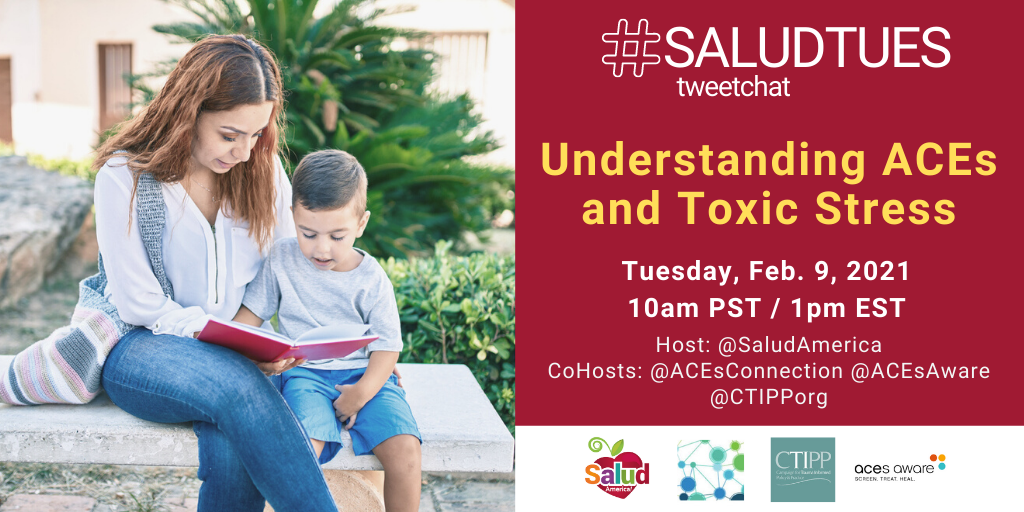
Share On Social!
Our bodies are wired for survival, thanks to our biological stress response system.
However, without buffering protections, Adverse Childhood Experiences (ACEs), like neglect and abuse, can lead to a toxic stress response.
The toxic stress response is a dysregulated biological stress response and subsequent changes to other physiological functions like the brain, hormonal systems, metabolism, immune response, and gene regulation.
ACEs and the toxic stress response are associated with some of the most common, costly, and serious health conditions, including heart disease, cancer, dementia, and suicide.
Fortunately, we can prevent and even mitigate toxic stress.
 Let’s use #SaludTues on Feb. 9, 2021, to Tweet about the lifelong consequences of ACES and toxic stress and prevention strategies.
Let’s use #SaludTues on Feb. 9, 2021, to Tweet about the lifelong consequences of ACES and toxic stress and prevention strategies.
- WHAT: #SaludTues Tweetchat: “Understanding ACEs and Toxic Stress”
- TIME/DATE: 1-2 p.m. EST Tuesday, Feb. 9, 2021
- WHERE: On Twitter with hashtag #SaludTues
- HOST: @SaludAmerica
- CO-HOSTS: ACEs Connection (@ACEsConnection); ACEs Aware (@ACEsAware); and Campaign for Trauma Informed Policy and Practice (@CTIPPorg)
We’ll open the floor to science, your experiences and stories, and best practices as we explore:
- The biological and social conditions associated with ACEs and toxic stress;
- Protective factors for ACEs and the resulting toxic stress; and
- Strategies to address ACEs and toxic stress.
Use #SaludTues to follow the conversation and share the latest in trauma-informed care.
#SaludTues is a weekly Tweetchat about Latino health at 12p CST/1p ET every Tuesday and hosted by @SaludAmerica, the Latino health social media campaign for the team at the Institute for Health Promotion Research (IHPR) at The University of Texas Health, San Antonio.
Explore More:
Trauma & ACESBy The Numbers
142
Percent
Expected rise in Latino cancer cases in coming years



